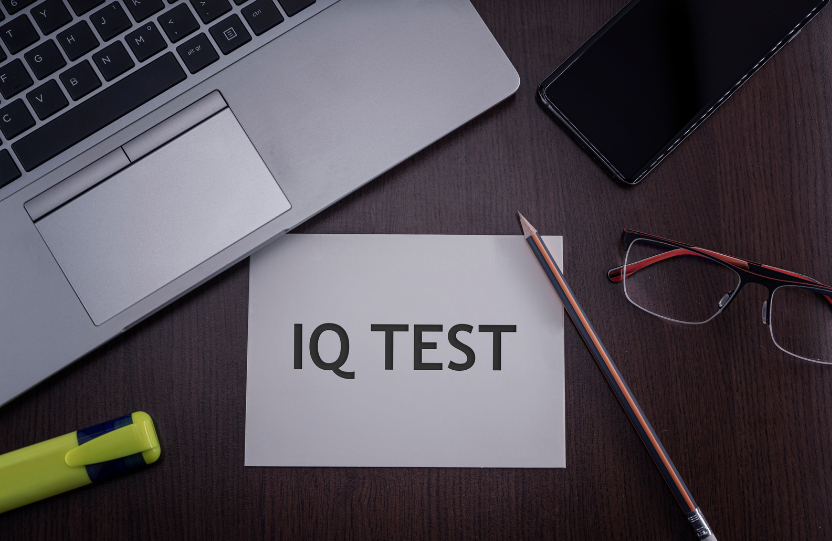Are you looking for ways to boost your intelligence and improve your IQ? The intelligence quotient, or IQ, is a measure of cognitive abilities and is considered an important factor in determining an individual’s problem-solving skills, critical thinking abilities, and overall mental capacity.
While IQ is largely influenced by genetics, there are several proven methods that can help you maximize your intellectual potential, like improving your problem-solving skills and improving your short-term memory abilities.
In this article, we will explore ten effective strategies to improve your IQ.
What is an IQ level?
IQ, which stands for Intelligence Quotient, is a measure of a person’s cognitive abilities or intelligence compared to the general population.
It is a numerical value that is determined through standardized intelligence tests.
The concept of IQ was developed by psychologists as a way to assess and compare individuals’ mental abilities.
IQ tests typically measure various cognitive skills, including logical reasoning, problem-solving, spatial awareness, mathematical ability, verbal comprehension, and memory.
The tests consist of a series of questions or tasks designed to assess these different areas of intelligence.
The scores achieved by individuals are then compared to a standardized scale, which represents the distribution of scores in the general population.
The average IQ score is set at 100, and the distribution of scores follows a bell-shaped curve known as the normal distribution.
About two-thirds of the population falls within the average range, with scores between 85 and 115.
Scores above 115 are considered above average, while scores below 85 are below average.
Common standardized IQ tests include:
- Wechsler Intelligence Scale for Children (WISC-V)
- Wechsler Intelligence Scale for Adults (WAIS-IV)
- Stanford-Binet Intelligence Scales, Fifth Edition (SB5): This test is designed to assess the intelligence of individuals of all ages, from children to adults.
- Raven’s Progressive Matrices: This is a non-verbal test that assesses abstract reasoning ability.
10 Proven Ways to Increase Your IQ

IQ is not a fixed attribute and can be enhanced through various activities and lifestyle choices. By incorporating these strategies into your daily routine, you can increase your cognitive abilities and improve your IQ.
1. Engage in mental stimulation.
One of the most effective ways to boost your IQ is to engage in regular mental stimulation.
This can be achieved through activities such as reading books, solving puzzles, learning new subjects, or engaging in intellectually challenging conversations.
By continually exposing yourself to new ideas and concepts, you can expand your knowledge and improve your IQ.
2. Adopt a healthy lifestyle.
A healthy lifestyle plays a crucial role in optimizing cognitive function.
Ensure that you maintain a balanced diet rich in nutrients, including omega-3 fatty acids, antioxidants, and vitamins.
Regularly consuming brain-boosting foods such as fatty fish, nuts, berries, and dark chocolate can support brain health.
Additionally, staying hydrated and limiting the intake of alcohol and processed foods can contribute to improved cognitive performance.
3. Engage in regular physical exercise.
Physical exercise not only benefits your body but also has a positive impact on your brain. Engaging in regular aerobic exercise increases blood flow to the brain, promoting the growth of new neurons and enhancing cognitive abilities.
Aim for at least 150 minutes of moderate-intensity exercise per week, such as brisk walking, cycling, or swimming, to reap the cognitive benefits.
4. Practice mindfulness and meditation.
Mindfulness and meditation practices have been shown to improve focus, attention, and overall cognitive function.
By training your mind to be present and cultivating a sense of calmness, you can enhance your ability to concentrate and process information.
Dedicate a few minutes each day to mindfulness exercises or guided meditation to reap the cognitive rewards.
5. Get sufficient sleep.
Adequate sleep is vital for cognitive functioning and memory consolidation.
During sleep, your brain processes and stores information, optimizing your learning and problem-solving abilities.
Aim for 7-9 hours of quality sleep each night to allow your brain to recharge and perform at its best.
6. Read widely and often.
Reading is an excellent way to expand your brain’s capacity and power, improve your vocabulary, and enhance your cognitive abilities.
Choose a variety of books, including fiction, non-fiction, and genres outside your comfort zone, to expose yourself to different ideas and perspectives.
Make reading a regular part of your routine to continuously challenge your intellect.
7. Solve puzzles and brain teasers.
Engaging in puzzles and brain teasers, such as crosswords, Sudoku, and riddles, can sharpen your problem-solving skills and boost your IQ.
These activities challenge your brain to think critically, analyze information, and find creative solutions.
Dedicate some time each day to solving puzzles to exercise your brain and enhance your cognitive abilities.
8. Learn a New Skill or Language
Learning a new skill or language stimulates various cognitive processes and enhances brain plasticity.
Whether it’s playing a musical instrument, painting, coding, or mastering a foreign language, acquiring new skills forces your brain to adapt and grow.
Embrace the challenge of learning something new and experience the cognitive benefits it offers.
9. Play strategy games.
Engaging in strategy games, such as chess, poker, or strategic video games, can improve your IQ by honing your critical thinking, problem-solving, and decision-making abilities.
These games require you to analyze situations, devise strategies, and anticipate outcomes, all of which contribute to intellectual growth.
10. NEUROFEEDBACK
Neurofeedback is a technique that teaches people how to deliberately regulate their brain waves.
During neurofeedback therapy, electroencephalography (EEG) is recorded.
Then, utilizing an online feedback loop, its different components are retrieved and supplied to subjects in the form of audio, video, or a mix of the two.
Neurofeedback teaches patients how to use self-regulation strategies to direct their brainwave activity toward more desired patterns that help them concentrate.
So, can neurofeedback therapy help you improve your IQ?
Yes, neurofeedback can improve your IQ and make it simpler for you to realize your full cognitive potential.
5 Habits That Lower Your IQ

In today’s fast-paced and technology-driven world, our habits and lifestyle choices have a significant impact on our overall well-being, including cognitive function.
It is fascinating to explore the various factors that can potentially influence our intelligence quotient (IQ).
1. Using a smartphone all the time
In today’s digital era, smartphones have become an integral part of our daily lives.
However, excessive use of smartphones has been associated with negative effects on cognitive abilities.
Research suggests that spending a significant amount of time on smartphones can lead to a reduced attention span, decreased memory performance, and impaired problem-solving skills. To maintain a healthy IQ, it is important to establish a balance and limit the time spent on smartphones.
Use a smartphone when it’s important; that will help you increase your iq and have better mental health.
2. Not healthy food
The food we consume plays a vital role in our brain health.
Unfortunately, a diet high in processed foods, which are often laden with artificial additives, preservatives, and unhealthy fats, can negatively impact cognitive function.
Studies have shown that consuming a diet rich in processed foods can lead to poor memory, decreased cognitive flexibility, and impaired learning abilities.
To optimize brain health and maintain a high IQ, it is crucial to prioritize a diet that includes nutrient-dense whole foods.
3. Too many tasks at the same time
Nowadays, multitasking has become a common practice.
However, contrary to popular belief, multitasking does not enhance productivity or efficiency. Instead, it can have detrimental effects on our cognitive abilities.
When we engage in multitasking, our attention becomes divided, leading to reduced focus and lower overall performance.
To preserve cognitive function and promote higher IQ levels, it is advisable to prioritize single-tasking and focus on one activity at a time.
4. Consume a lot of sugar.
Excessive sugar consumption not only affects our physical health but also has a negative impact on our cognitive abilities.
Research suggests that a diet high in sugar can lead to cognitive decline, impaired memory function, and decreased brain volume.
The consumption of sugary foods and beverages causes fluctuations in blood sugar levels, leading to energy crashes and difficulties in concentration.
To support optimal brain function and maintain a sharp mind, it is important to reduce sugar intake and opt for healthier alternatives.
5. Long work hours
Long commutes can be mentally and physically exhausting, and they also have implications for cognitive function.
Spending a significant amount of time commuting can lead to chronic stress, sleep deprivation, and reduced cognitive performance.
Studies have shown that individuals with longer commutes tend to have lower attention spans, decreased memory capabilities, and difficulties in problem-solving.
If possible, it is beneficial to explore alternative commuting options or consider relocation closer to your workplace to minimize the negative impact on your IQ.
How to Take a Certified IQ Test: Unlocking Your Intelligence

We conducted research and discovered certain websites where you could take a legitimate and accurate IQ test. On these tests, you have a set of questions to answer and a predetermined amount of time to do so.
So, how exactly do you take an official IQ test? Simply keep reading.
Here are the top three options for taking an authentic (cheap) IQ test online.
123 Test (free IQ test)
To know how much you improved your IQ since taking our tips on how to improve IQ.
Try to take this great free online IQ test.
Get your IQ score quickly and accurately. Test how smart you are in just a few minutes with this fast online IQ test.
Official IQ Test.org
This exam, which has been taken by millions of people all around the world, has been referenced and endorsed by education psychologists on websites such as Researchgate. An expert on the issue, Margarita Parra, characterizes this test as “a great tool if the use case of the IQ test is going to be recreational, for training and practice purposes, or to obtain a broad estimate of someone’s IQ.”
The evaluation costs $22.9, which is significantly less than the cost of in-person exams.
Mensa IQ Test
Mensa, a non-profit organization that has developed IQ tests for over 30 countries, allows anyone to order one. To do so, contact them via their website and request the test by email. It is a non-automated test that needs hand scoring and correction. Typically, results are delivered within one to two weeks. The cost of the exam varies depending on the location or test version chosen; however, it generally ranges from $40 to $100.
Conclusion
In conclusion, how to improve IQ Improving your IQ is an achievable goal with the right strategies and lifestyle choices.
By engaging in mental stimulation, adopting a healthy lifestyle, practicing mindfulness, getting sufficient sleep, reading widely, solving puzzles, learning new skills, and playing strategy games, you can enhance your cognitive abilities and increase your IQ.
Remember that intelligence is not fixed, and by consistently challenging yourself, you can unlock your full intellectual potential.
FAQs (Frequently Asked Questions)
Yes, IQ can be increased naturally through various lifestyle changes and mental exercises. By incorporating the strategies mentioned in this article, you can enhance your cognitive abilities and improve your IQ.
Improving IQ is a gradual process that requires consistent effort and dedication. The time it takes to increase IQ varies from person to person, depending on factors such as their starting point, commitment, and consistency.
Certain foods rich in omega-3 fatty acids, antioxidants, and vitamins are known to support brain health and cognitive function. These include fatty fish, nuts, berries, dark chocolate, and green leafy vegetables.
Strategic video games can improve cognitive abilities such as problem-solving, critical thinking, and decision-making skills. However, it’s important to maintain balance and avoid excessive gaming.
No, IQ is just one measure of intelligence and focuses primarily on cognitive abilities.
There are other forms of intelligence, such as emotional intelligence and social intelligence, that play important roles in human intelligence.
Increasing IQ to 300 is currently not supported by scientific evidence. IQ is influenced by genetics and environmental factors, and while education and cognitive exercises can improve it to some extent, dramatic increases are unlikely.

